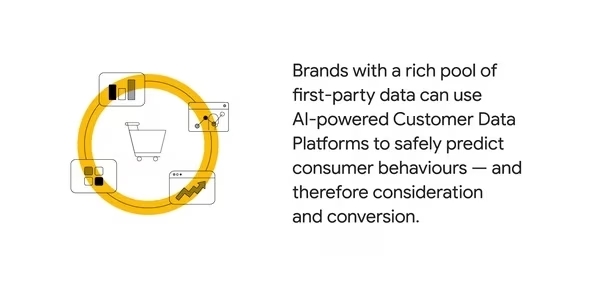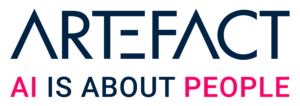You’re reading an article about privacy in the ever-evolving digital landscape, as maintaining privacy becomes ever more paramount.
Harun Mlivo oversees ad technology and partnerships at Google Middle East and North Africa, pairing partners with clients on the ideal ad solutions to maximise their ROI. Chantal Azzi leads ads data privacy at Google, ensuring ecosystems are privacy-ready and advertisers are equipped to future-proof their marketing strategies.
Forty-three per cent of people say they’d switch from their preferred brand to a second-choice brand if the latter provided a good privacy experience.1 With that in mind, providing consumers with a privacy-safe shopping journey can no longer be an afterthought.
So what are the most effective ways for brands to collect first-party data, deliver relevant ad experiences, and analyse and measure results with minimum gaps — all in a privacy-safe way?
We spoke with three Google-certified media, data, and analytics partners based in the Middle East to get their advice on how brands can maintain effective performance with a customer-first approach that’s centred around information privacy.
Use AI power to build a stronger, safer marketing environment

Quality artificial intelligence (AI) marketing solutions factor data protection into their technology already.
If you use them, you’re already one step further on your privacy-safe digital marketing journey. It also means you’re ahead of competitors who don’t have them in place.
If you have a rich pool of first-party data available, AI-powered Customer Data Platforms like Google Cloud’s are extremely useful. They can help you safely predict consumer behaviours — and therefore consideration and conversion.
Automated data transfers help Customer Data Platforms break data silos at speed. This allows marketing teams to quickly offer consumer recommendations based on algorithms, forecast a customer’s lifetime value, and design solutions that understand the likelihood of a person buying something based on what they’ve bought before.
These platforms can also make insights available across an organisation. This allows marketers to safely share data across various marketing platforms, like Google Ads and Google Marketing Platform.

Considering the modern consumer’s complex multi-device and channel usage journey, this is especially helpful for advertisers who want a wide-angle customer view quickly.
At Artefact, we’ve been able to leverage the automative power of Google AI to help build our own marketing-measurement solutions that answer our clients’ specific questions. For example, we’ve been able to measure the correlation between online and offline sales, and how much more incremental conversions a brand could expect with a budget boost.
Whatever AI marketing solution you choose to use, don’t just go for the cheapest option — especially when taking information privacy into account. Even starting with just one quality AI-powered solution that works in the context of your objective, and scaling from there, is a good way to kick things off.

 BLOG
BLOG




